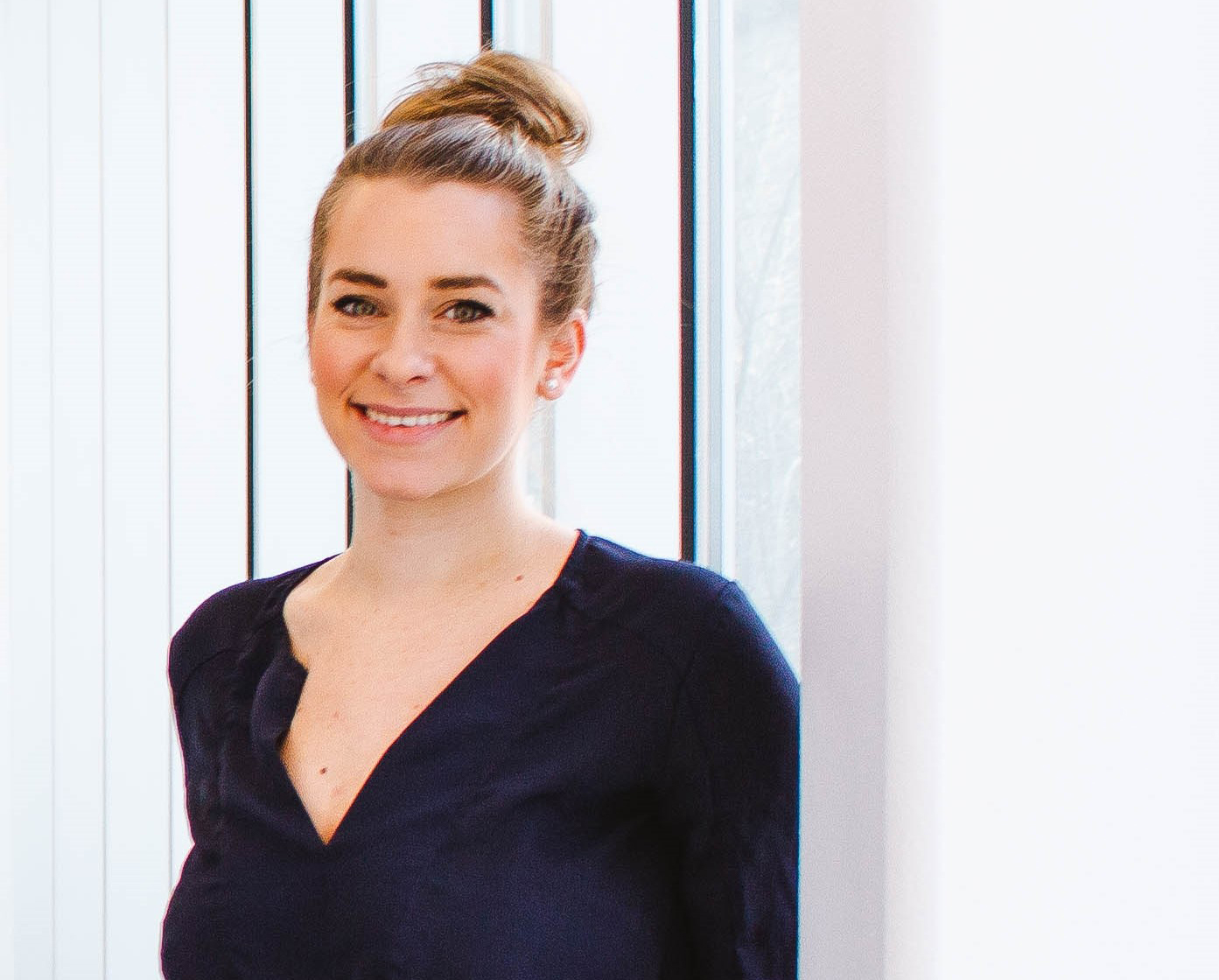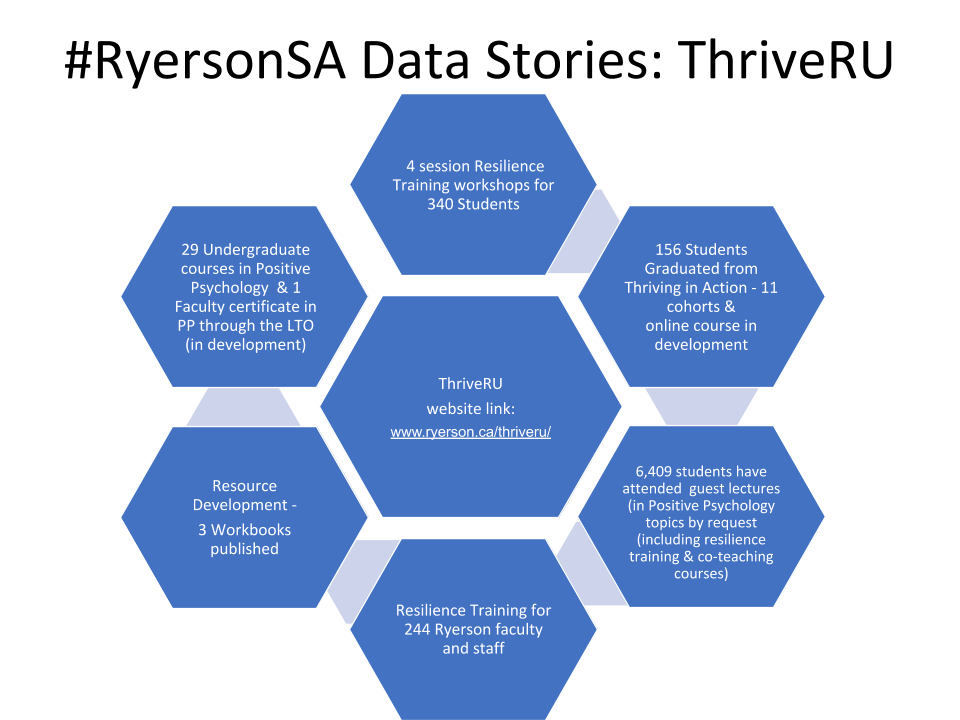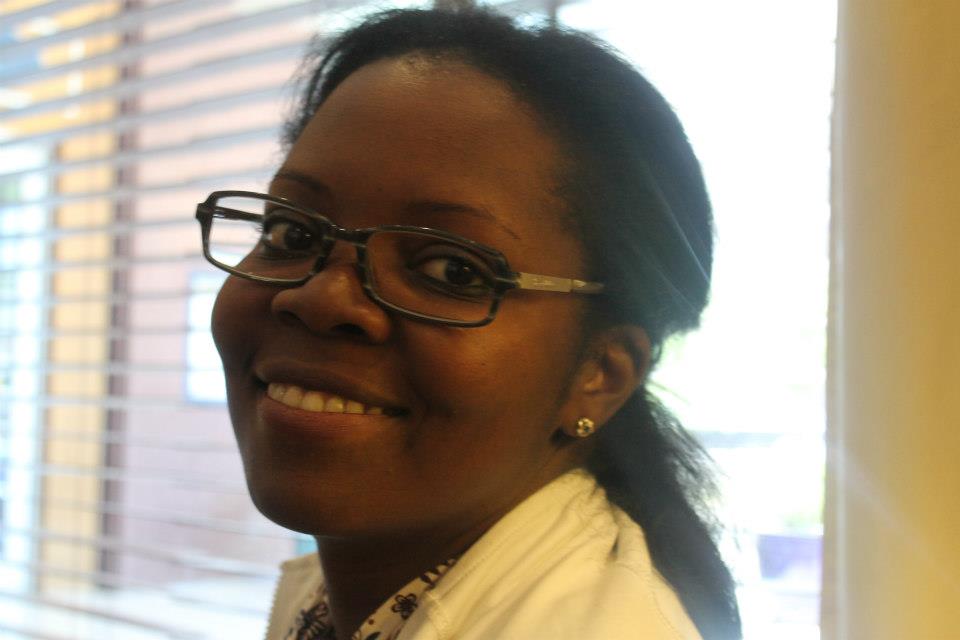RyersonSA Digest, Issue #3
Welcome to the third installment of the new #RyersonSA Digest - coming straight to your inbox on a monthly basis. This format aims to be more accessible than the previous ryersonstudentaffairs.com. You can find an archive of all the old posts from ryersonstudentaffairs.com at ryerson.ca/studentaffairs/storytelling/stories.
These ‘digests’ contain student stories, staff spotlights, program highlights, noteworthy changes, and anything we think you might be interested in regarding the world of Ryerson Student Affairs. If you have information or upcoming events you would like to see in future editions, please share with Sarena Johnson in SA Storytelling at sarena.johnson@torontomu.ca.

by Sarena Johnson | View Article Separate >

“We really can’t work in silos. It’s not possible to work with students in a good way without coordination.” — Meaghan Morris
There’s no typical day or typical student case for Meaghan Morris. She works with students navigating a myriad of unique and compounding issues during tough times in their studies. Meaghan started in her role as Coordinator of Student Case Management in November 2018. So after having seen almost one full school year, it was a good time to sit down with Meaghan and find out about her complex role in RyersonSA.
Students are referred to Meaghan in various ways. But she works with students who need additional support and resources or are presenting as “problematic” in some way, shape or form. It usually begins with a referral, concern, or complaint about the student - whether from security, faculty, another student, or staff. Faculty or staff have made the referral resulting from a decision that they cannot deal with these students’ issues alone.
The presenting factor often stems from more than just one concern and it’s Meaghan’s job to unravel the layers beneath that behaviour with the ultimate goal of helping the student get back on their feet, regardless of what that might look like. So when students present with one major “problematic” issue, Meaghan uses a holistic lens to see how their academics or other areas of life are doing and makes sure they are connected in all ways to ensure their needs are met.
Meaghan works with students who need additional support navigating a number of different University offices and external resources. She deals with complex needs such as the process of seeking academic considerations due to medical issues, family issues, mental health - anything that requires a creative collaboration of teams to help students achieve their goals. Sometimes students need time off for medical or family issues - this can impact their status as students, funding/OSAP, Etc. So Meaghan is an advocate through multiple interlocking systems that students are facing.
Sometimes the notification will be a result of things that happened on campus - E.g. traumatic experiences such as witnessing an overdose or experiencing a assault on the way to an exam. You know those security incident emails we all get in our inboxes? It’s Meaghan’s team (with Simon Finn and Marcelle Mullings) who follow up with many of those reports and deal with the aftermath of those traumas.
Academic Accommodation Support (AAS) can support students with health or disability needs, but many situations are not directly related to students registered with AAS. There are also many students with as yet undiagnosed disabilities, mental health and addiction related issues who present with “disruptive” behaviour in various forms. Meaghan creates plans on managing expectations around behaviours - but more importantly, understanding the reasons for those behaviours.
For example, a faculty might report a student for using foul language in an email. Simon would work to identify if the behaviour fits within the Student Code of Non-Academic Conduct policy or if the behaviour can be addressed outside of the Code.Their work also intersects with the Discrimination and Harassment Prevention policy from the Ontario Human Rights code, and the University’s Sexual Violence Policy. So Simon primarily works on investigations for code based violations, then Meaghan supports the coordination and navigation of resultant processes on campus.
Interactions with students vary widely for Meaghan - from one time visits to ongoing case management. Students might have one issue resolved then return with another at a later time. So you can’t apply a structured model like one visit a week, Etc. It’s really a case by case and situation by situation basis. Meaghan works with students to identify outcomes that need to be met for them to come back to class and be integrated in coming back to school.
Having a background in Indigenous social services organizations, I related to Meaghan’s role in being a helper during various crises involving trauma, addictions, and mental health - including undiagnosed or recently diagnosed. Meaghan’s goal is to connect students to the care they need - some as basic as housing and involving intersecting and interlocking barriers to well-being. The work involves a lot of emotional labour but Meaghan’s team uses a coordinated effort and meet with case management team on a weekly basis. Participants include members from security, counselling and human rights services. Meaghan says, “We really can’t work in silos. It’s not possible to work with students in a good way without coordination.”
Meaghan started her education with a broad policy focus but found that her calling was the 1:1 work with students. She began working in Residence Life at U of T when she was an undergrad student there. Then she completed a practicum based Master of Public Health in Health Promotion, focusing on global health research before working with on mental health with Student Life. That was Meaghan’s “Aha” moment - the work really called to her and she decided that’s what she wanted to focus on. So upon completing her studies, she went to Guelph and worked as a Residence Life Manager. She really enjoyed the 1:1 direct work with students. She also did sexual violence training and student support work at Guelph with their Human Rights Training office, but missed the 1:1 - helping students navigate tricky situations when they needed time and empathy. She had spent almost five years in Guelph and wanted to move back to Toronto, enter RyersonSA!
The calling to help individual students demonstrated Meaghan’s emotional capacity. And like many people with strong emotional intelligence, Meaghan is “into” music. Like, driving to Boston alone to see the Arkells (who she saw five times last year) into it. Just this week Meaghan is seeing three live shows, including Tim Baker (Originally from Hey Rosetta) twice, as well as Broken Social Scene. Meaghan says, “Music is my spirituality. Music is healing for me.”
In honour of the healing potential of music, here are a few of Meaghan’s favourite songs:

(image file) View Image Separate>

The ThriveRU resilience capacity building program, started by Dr. Diana Brecher and co-stewarded by Dr. Deena Kara Shaffer, has ten components:
- Resilience training for students
- Thriving in Action 10-week course co-facilitated with Dr. Deena Kara Shaffer
- Workshops for students
- Guest lectures
- Resilience training for faculty and staff
- Publications
- Research
- Media exposure
- ThriveRU Website and RULA library collection (mental health resources on Thriving)
- Ongoing projects and projects in development:
– TiA online course, Positive Psychology course, Creative Industries course

Find out more about ThriveRU and how it might be beneficial to your students or team on the ThriveRU website.
Student Stories: First-Year Advice
Created by Student Life TMU

What would you tell your first-year self? We asked current Ryerson students to share advice with their younger selves.

by Sarena Johnson | View Article Separate >

“This is something I’ve always wanted to do for students and never had the ability to do.” — Juannittah Kamera
I was in the midst of pondering the innovative Ryerson Student zZz Zone Nap Space initiative when lo and behold, the nap station creator herself, Juannittah Kamera, (RN, BScN, MScHPPH, MRSPH, Health Promotion Programs Coordinator) popped into my office. We had a brief chat about how this amazing project started, actual logistics and future hopes for the zZz Zone.
A space for students to rest between exams or just throughout the day has been something Juannittah has dreamed of doing for quite some time now. The idea was to give students a place to rest after exams, between exams, or recalibrate after a heavy exam and before they made their (often long) commutes home. Thanks to a portion of last year’s Giving Tuesday fundraising efforts - this dream became a reality for students this winter exam season. It must have been in the stars, since the space to house the nap station and test out this unique student health initiative was also available. The “stuff” required to create the space cost a modest $2500 in total but based on initial feedback, the impacts for students have been enormous.
Juannittah had been interested in such a project for years and was eager to try it out. She was also curious as to whether students would actually use such a resource should it be available. The answer was an overwhelming YES! With the ten nap stations at or close to capacity every hour during the first week of exams, there is a demonstrated demand for this resource.
It was recommended that students book their naps ahead on the Student Health & Wellness website to guarantee a spot, but whenever there was space, “walk-in nappers” were not turned away. Juannittah, who monitored the zZz Zone, found that about half the naps were booked and about half were walk-ins (or more literally, walk-bys).
She created some clear rules and boundaries for safety and respect of all participating students. The doors were closed at ten after the hour, to create a true quiet space. There was a strict no study and no text policy - which could be distracting to other students. Juannittah would ring a bell at twenty minutes to the hour to let students know it was time to start waking up, then again at quarter to, to let them know it was time to wake up and leave so she could turn over the stations for the next set of sleep-deprived students. There were no complaints about the naps being too short. One student was ‘dead on her feet’ after the session so Juanita allowed her to stay for another.
There were several repeat users, who would use the Zone at 11am or 3pm, coinciding with their exam schedules every day. Overall, the students were split between about half that used the space to rest but not necessarily sleep - and half that were out like a light the minute they laid down. Juannittah never realized the wide variety of styles and volumes of snoring and even had to suggest one student see a Doctor about possible sleep apnea. The students napped on Canadian Tire-bought outdoor recliners. Despite budget supplies, feedback on comfort was positive and even stomach sleepers were able to “make it work.”
As of today (April 24), the station is still in use but starting to taper down as fewer students are on campus and many exams are wrapping up. So is this something that could be available throughout the year? Juannittah says, “It would be ideal to offer nap stations throughout the school year but it always comes down to space.” There would need to be a designated nap space. She suggests that perhaps it could just be offered Monday to Thursday, September to April. That’s Juannittah’s hope and for the sake of the students’ well-being, I certainly hope this dream becomes a reality.

Juannittah Kamera is the Health Promotion Programs Coordinator and Registered Nurse overseeing Toronto Metropolitan University's Health Promotion unit. She engages and collaborates with students, staff, and faculty to address the numerous issues that challenge students and impede their ability to perform at their best. With a Masters in Health Promotion and Public Health, her work contributes to establishing Ryerson as a healthy campus community where students can flourish and succeed.

Telling Our Podcast Story in Higher Ed (external link, opens in new window)
By Laura Pasquini

Decolonization Talk at Soup and Substance (external link, opens in new window)
By Sarena Johnson

Complexity Leadership in Education: A Brief Overview (external link, opens in new window)
By John Hannah

MOOC and Online Learning Roundup: #SAcdn Edition (external link)
By Patty Hambler

Student Voices: Mentorship in Student Affairs (external link, opens in new window)
By Vimbai Chikoore

It’s never too late to add your comments on the individual posts or add a new topic to the discussion (external link) .

As a final thought to the digest, we will nominate one #RyersonSA pro to share a random pondering each month. This can be a personal reflection, a response to a conversation with colleagues, something from social media - it’s totally open. Answers/comments/criticisms can be posted with the hashtag #RyersonSA or emailed to sarena.johnson@torontomu.ca for printing in next issue, or, just because. The designated ponderer will then nominate a colleague from a different unit to submit the next issue’s pondering.

Adrian Layne’s Pondering
"How much do we value healthy emotional intelligence in the workplace?"

For next month’s ponder I nominate Andrew Bisnauth!